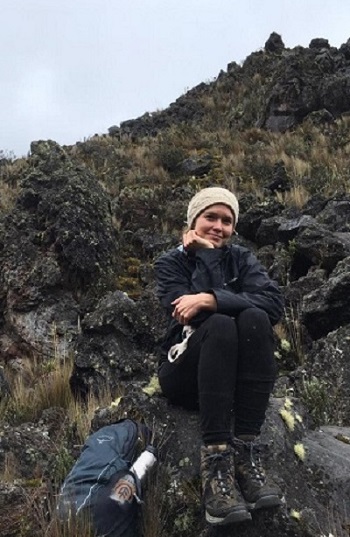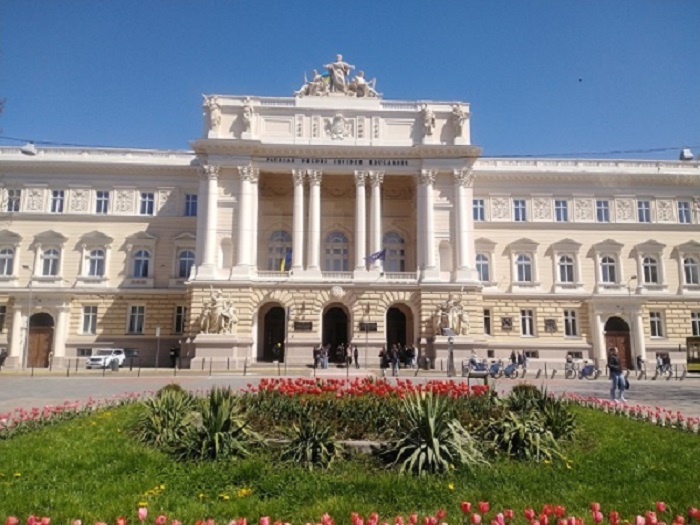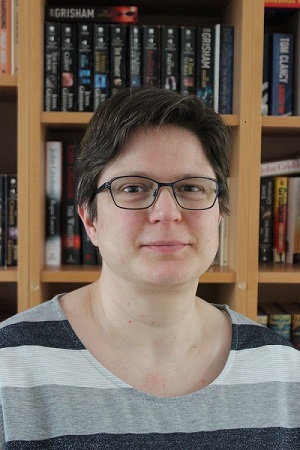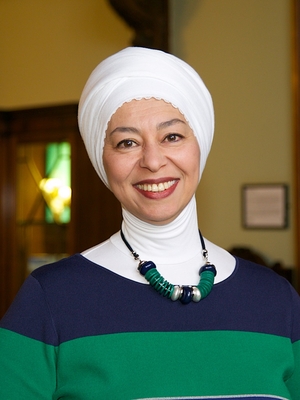
When I became an editor, I believed my job would mainly be spent in the study of right and wrong. Style guides and dictionaries in one hand, red pen clutched in the other, I was ready to supply grammatical and syntactical improvements. And yet, when I moved from the US to Japan and began working with Japanese companies that were writing for western audiences, I found myself spending most of my time wading through the world of subjective edits.
When editing across cultures, it becomes so much more complex than words on a page. The once-clear rules of grammar and punctuation become blurred as you switch from one version of English to another. Voice, tone, scope, and word choice are ever shifting as you consider the cultural backgrounds of both the author and the audience. How do you decide how heavy-handed to be? How do you help the author maintain the integrity of their piece while making it digestible for a foreign audience?
Unfortunately, there is no correct answer. While we can find some guidance in published literature, it is ultimately up to international editors to help the author find a successful balance for their work. For me, I’ve found that beginning with a few small things can go a long way.
1. Begin with mechanics
Does the audience use the metric system or the imperial system? American or British spelling? Adjusting the mechanics of the piece to the viewpoint of the audience can improve readability and help the author more easily connect to the intended audience.
2. Consider general knowledge
Most authors write from the standpoint of their own society’s knowledge base. The challenge is that the general knowledge of each culture is different. For example, an author may need to specify that Sir Don Bradman was an Australian cricket player when writing for American audiences or that Russell Wilson is an American football player when addressing Australian audiences. Japanese audiences will likely understand the date range of the Edo period but not that of the Irish Civil War. Helping an author bridge these knowledge gaps is essential when editing on the international level.
3. Address the goals of the author and the audience
The goals of both the author and the audience will change from piece to piece. Understanding the goals of both parties will help us successfully navigate the editing process. Is the author intending to write a text that introduces their unique cultural outlook and challenges the reader, or are they aiming to create a narrative that blends seamlessly with the audience’s worldview? Likewise, is the audience intending to learn more about a new culture or are they looking for something closer to their comfort zone?
4. Verify inclusive language
As editors, we are constantly on the lookout to avoid non-inclusive language. However, when editing internationally, we must also understand how the definition of inclusive language changes from country to country. It’s vital that we understand our audience’s inclusivity guidelines so that we can help the author avoid any unintended offenses.
As globalization continues to pull our world closer together, it becomes increasingly important for editors to be able to edit across countries and cultures. While there aren’t always clear-cut answers for this line of editing, the more we editors are able to discuss our choices, the more we can work together to ensure we are providing authors with the best edits possible.
|
Blog post by: Taylor Steed Website: taylorrsteed.contently.com LinkedIn: taylor-steed |

Those attending the SENSE 2023 Annual General Meeting this March (or reading the 2023 AGM bulletin) may have been surprised to see the announcement that the organization’s Executive Committee (EC) was being pared down to five (Chair, Treasurer, Secretary, and two Members-at-large) from eight members, with five former EC positions now designated as Team Leaders (Content Manager, Web Manager, Social Media Coordinator, SIG & Social Events Coordinator, and Continuing Professional Development Coordinator).
This change was not some draconian power grab but a move to allow the EC to focus on strategy while the Team Leaders (TLs) can focus on their respective tasks without the need to attend too many meetings, and also to better shield individual members from liability, in line with a new (well, from 2019) act called the Wet Bestuur en Toezicht Rechtspersonen (WBTR).
Compliance with the act was brought up at the 2022 AGM as well. The act applies to all associations with members (verenigingen) such as SENSE and to foundations without members (stichtingen). The WBTR’s general aim is to ensure good governance, better defined as having things run cleanly and with a minimal risk of conflict of interest and liability. The new legislation defines executive and supervisory tasks in an organization, ensures that there are provisions for dealing with EC members who can no longer serve due to illness for example, and offers a template for organizations to clarify the roles and tasks of EC members.
Under the new act, personal liability of EC members has been expanded in cases of serious maladministration, such as improper filing of accounting documents or entering into agreements that cannot be fulfilled. There is also more clarity around what constitutes individual versus group liability. In this regard, liability of SENSE has not been changed by the act, but only personal liability in case of maladministration.
What kind of liability could EC members of an organization like SENSE face? The example from last year’s meeting was a theoretical Treasurer running off with a large sum of money. Would the WBTR apply in this case? Yes, if the EC does not have clear rules and guidelines in place that would prevent the Treasurer from doing something like this, then EC members could potentially be held liable.
The WBTR also includes new rules about what to do in the event of an EC member’s absence and explicitly forbids EC members from participating in meetings or voting on issues in which they have a conflict of interest.
The EC is currently composing governance guidelines that will apply to EC members. They are also in the process of identifying the parts of the SENSE Constitution that will need to be adapted to bring them in line with the new legislation. Once complete, a draft of the updated Constitution will then be shared with SENSE members for discussion and eventually approved by the membership at a General Meeting.
------------------------------------------
Acknowledgement
Special thanks to the following contributors: Hans van Bemmelen, Sally Hill, Samuel Murray, Margreet de Roo, Curtis Barrett and Paula Arellano Geoffroy.
|
Blog post by: Anne Hodgkinson Website: rosettastonetranslations.nl Blog: bootsandbowtie.com |
 It’s always a pleasure to find people interested in writing and literature, so I reached out to fellow SENSE member Sarah Foster to invite her to share her background and interests with us and to welcome her to SENSE.
It’s always a pleasure to find people interested in writing and literature, so I reached out to fellow SENSE member Sarah Foster to invite her to share her background and interests with us and to welcome her to SENSE.
You are American, but have lived abroad for a long time. Can you tell us a bit about yourself and where you are from?
I’m originally from Virginia, but I had lived in Ecuador for most of the last ten years. I studied history and comparative literature in the US. My professional background is a mix of education, journalism, writing, and translating. I used to teach full-time. I love working with students, but I think the flexibility of freelancing is a better fit for me. I started off with a few random translating and editing jobs until I felt more confident and built up a repertoire of skills and services that I could offer. I wrote for a travel magazine, translated film scripts and subtitles, and did a few reporting projects on conservation and environmental issues in Ecuador. I recently finished a longer project developing an intercultural communication course for an NGO.
May I ask what brought you to the Netherlands and how are you getting on with Dutch?
My partner found a job here, so we decided to make the move. I was also ready for a change of pace and looking forward to more professional opportunities. I understand Dutch quite well, and I can manage most basic interactions. Watching TV shows and reading children’s books are helping me to learn more vocabulary and grammar. I hope to make some progress over the next year so that I can start to use Dutch more in professional contexts.
How did you learn about SENSE and why did you decide to join?
I have been freelancing since 2016, but I left most of my clients and professional network behind when I came to the Netherlands. I started looking for resources for Dutch freelancers. I came across SENSE and thought it would be a good way to make connections.
It must be challenging to be studying and working at the same time. How do you manage?
I’m studying in an environmental humanities graduate programme at Vrije Universiteit Amsterdam, and I also work on my freelance business. It’s been really busy, but both are important to me. Recently, I’ve done mostly fact checking, translation (Spanish-English), and editing.
I’m really enjoying my graduate school experience, and it’s helping me to specialize in environmental research. I’ve gotten to work on projects about landscapes, conservation, climate change, and environmental philosophy. If you are looking for a researcher, writer, or editor for an environment-related project, please feel free to reach out (website: sarahjanefoster.work; LinkedIn: sarah-jane-foster).
I also write poetry and nonfiction and I’d love to connect with other writers here in the Netherlands.
What do you like to do in your free time?
Well, I used to do a lot of hiking, but there aren’t many mountains around here! I’m starting to enjoy cycling, and I also like ceramics and singing.
Is there anything that you would like to share with the SENSE community?
I hope to find spaces to learn from other people’s experiences, and I’m also very happy to share my own! I’m glad to now be a part of the community.
|
Blog post by: Paula Arellano Geoffroy Website: paulaarellanogeoffroy.com LinkedIn: paula-arellano-geoffroy |
Academic copy-editing and writing in Ukraine: From censorship to enlightenment
Written by Tomas Brogan 
On Friday 14 April 2023, UniSIG members were joined via Zoom by Tatyana Yakhontova, professor of the Foreign Languages for Sciences department at the Ivan Franko National University of Lviv. Professor Yakhontova, who is a founder of the first Center for English Academic Writing in Ukraine and author of two textbooks on English academic writing, spoke about traditional and changing approaches to the written word in Ukraine, specifically in academia.
At the start of the meeting, the professor gave members pause for thought when she described the impact of the continuing war in Ukraine. The historic city of Lviv, though considered a relatively safe place for refugees from eastern Ukraine, is still regularly under attack. Cages erected to protect the many UNESCO sculptures in Lviv serve as a daily reminder of this context.
Professor Yakhontova spoke on the strong ‘culture of the word’ in Ukraine, and the value placed on grammatically and stylistically correct texts. Traditionally, writing was seen as a natural talent, not a skill that could be developed, and instruction was implicit. In Soviet times, copy-editing was used as a controlling, prescribing and censoring activity. Professor Yakhontova shared a personal anecdote wherein the copy editor of her first journal article drastically changed the text, and the changes made were not up for discussion. So it was in Soviet times.
After Ukraine’s declaration of independence in 1991, the world of academic writing and copy-editing began to change. There was broad support across society for a new ‘enlightening mission’ of copy editors, and the focus was placed squarely on the quality of the finished text. Notably, the original author of the text was now in a position to reject proposed changes! In the discussion that followed the talk, it was remarked how much copy-editing as a profession was valued in comparison to some other countries. Currently in Ukraine, both the copy-editing and the revision of all texts to be published are held in high regard, and almost all copy-editors are employed by publishers. This is in contrast to the freelance markets elsewhere, for example in the Netherlands and in the UK.
The reasons for these changes can be located in Ukraine’s striving for integration in Europe, the increased collaboration with US and European colleagues, and the development of applied linguistics, particularly in discourse and genre studies. In turn, these developments yield practical implications that can be used in teaching writing, and academic writing in particular.
Academic copy-editing in the English language in Ukraine is only sporadically sought out by people who work in the university system, who must publish in English ‘or perish’. However, these scholars often possess an insufficient level of English. If students are expected to write in English, for example in the case of English literature students, it is simply expected that they will know how to do so. This is also the case for many researchers, who seek writing assistance only informally. At the same time, there is increased instruction in academic writing, for example, through short training courses and writing courses aimed at doctoral students.
Concerning academic writing in the Ukrainian language, even less copy-editing support is available, which may reflect the traditional view of writing as a natural talent. At the same time, copy-editing of texts written in Ukrainian continues to be seen as a socially important activity that helps to celebrate and preserve the national language. This reflects a feeling of pride in the written word that is even more evident since the 2022 invasion.
People who attended the meeting, among whom were guests joining from outside the Netherlands, offered perspectives on English language proficiency, copy-editing and writing instruction (or lack of) in the UK, the Netherlands, Finland, South Africa, Switzerland and Kazakhstan.
|
Blog post by: Tomas Brogan LinkedIn: tomasbrogan |
 On Saturday 20 May 2023, Margreet de Roo will give a workshop for SENSE about working with MS Word. In the following interview, I ask Margreet about her workshop, what the public can expect and why it might be interesting to attend.
On Saturday 20 May 2023, Margreet de Roo will give a workshop for SENSE about working with MS Word. In the following interview, I ask Margreet about her workshop, what the public can expect and why it might be interesting to attend.
Could you tell us a little bit about your background and how you came to give training sessions on MS Word?
I have spent the last ten years working as a freelance editor and translator and I gained a lot of experience with MS Word during this time. I was curious about what else the program had to offer, so I set out to learn more. I started reading books and taking courses, applying this knowledge in my own work. I gradually expanded my experience and in 2017 I started to give workshops about MS Word myself.
Is this workshop aimed at beginners or advanced users of MS Word?
This workshop is aimed at both beginners and advanced users. Anyone who uses MS Word on a regular basis will be able to get something out of this training. Participants of my past workshops have often said they learnt so many new things, despite having worked with MS Word for years. Language professionals often don’t know all the different functions and possibilities the program provides. However, you can work so much faster and more efficiently if you know how to personalize MS Word and make use of all its options.
What will participants learn during the workshop?
We’ll focus on different topics such as how to use macros, create shortcut keys, and personalize the ribbon and the quick access toolbar (QAT). You’ll also get an introduction into the use of the proofreading software PerfectIt. The aim is to make sure you’re able to work faster and more efficiently by identifying the functions that are useful to your work and personalizing MS Word to suit your needs. On top of that, I would like to make working with MS Word more fun, and challenge you to learn more about it, and everything it has to offer, on your own. Another important thing to mention is that attendees can always contact me, even months after the workshop, if they have any questions about the things they learnt during the workshop. I will help people along if they forgot something or can’t remember how to apply some of the techniques.
Aside from improving your knowledge of MS Word and thereby improving your productivity and effectiveness as a language professional, this workshop will also be a great way to get to know colleagues and make new contacts during lunch and the different coffee breaks. There are plenty of reasons to sign up, I’d say! If you’d like to attend the workshop, please register on the SENSE website. I hope to see you at Park Plaza in Utrecht on 20 May.
|
Blog post by: Maaike Meijer LinkedIn: maaike-meijer |
Up close and personal: My first in-person Annual General Meeting
Written by Naomi Gilchrist
When I was studying for my degree in translation, several teachers pointed out the benefits of joining a professional organization, and SENSE was one of the organizations whose name came up. I was eager to discover more about SENSE, so I registered to join the 2020 Jubilee Conference as a guest. Because of the pandemic, this event was moved online. I enjoyed everything that was on offer during the conference and I learnt a lot, so I decided to go ahead and become a member.
In the following years I attended many more online SENSE events, including the Annual General Meeting (AGM) in 2021 and 2022. The AGM of 25 March 2023 was the first in-person AGM in quite some time and it was also the first large in-person event for me. I had previously spoken to some SENSE members during various Zoom meetings and workshops, so I was excited to meet everyone face to face.
The ‘meet’ of the matter
Luckily, I had been to the meeting venue at Park Plaza before, so I did not have any trouble finding the place. The doors opened at 12:00, which gave members the opportunity to meet, catch up, and discover new books in a mini book-swap before the meeting started at 13:00 sharp.
During the meeting, we discussed the minutes of the previous AGM and the reports from the Executive Committee (EC) and Team Leaders. We also looked at SENSE’s new organizational structure and voted for the election and re-election of several members. After discussing the points that came up during the ‘Any Other Business’ portion of the meeting, we took some time to thank the retiring EC members and all other volunteers for their valuable contributions.
Despite the full agenda, we managed to end the meeting right on time. The minutes of the meeting will be shared with SENSE members at a later stage.
Wrapping up the day
After the meeting concluded, many of us stayed and joined a singing workshop. There was singing (now, I don’t think the teacher was extremely impressed with the vocal prowess of most of us, but I thought we sounded pretty good!) and there was even some dancing. I think we all enjoyed being able to move around a bit after having sat down all afternoon.
Some of us then went on to have some drinks at the hotel bar and a very nice meal at an Indian restaurant. All in all, I felt it was a productive and fun day.
|
Blog post by: Naomi Gilchrist LinkedIn: naomi-gilchrist-translator |
UniSIG report: 10 February 2023 – Dealing with Chinese and Southeast Asian clients in academia
Written by Michelle Mellion 
On Friday, 10 February 2023, Kenneth Quek, a Chinese Singaporean who lives and works in Helsinki as a freelance editor, spoke online to 18 UniSIG members. Coming from Singapore, a country with the third highest population density in the world, a multicultural society and a postcolonial past, he is familiar with the need to respect cultural identities.
During his talk, he first explained how important it is for the Chinese and Southeast Asians to establish a context. Perhaps you may have heard how when Chinese students are shown a photograph of a tiger in a forest, they focus on the context, the forest behind the tiger, whereas American students focus on the tiger itself. Kenneth told us that although those coming from different cultures might be acting in good faith, these differences in perception can cause misunderstandings to occur.
Cultural attitudes have implications when conducting business, and this can be traced back to Asia’s hierarchical culture. Age-related factors such as having seniority within a company or simply sporting a white beard inherently command respect. Needs and desires are culture-bound and Kenneth recommended that you first need to convince the Chinese and Southeast Asians to allow you to help them. In line with their cultural expectations he said, ‘you do a favour to get a favour’. He mentioned that ‘there’s an assumption that we’re going to run into this person again’ so we need to establish a rapport from the very start. He added, ‘It’s important to build trust in your relationships’.
Kenneth also referred to how the postcolonial historical context has coloured Asian people’s feelings in their relationships with Westerners. He remarked that ‘there’s a lurking sense that the West doesn’t have Asia’s interests at heart’. In his own country of Singapore, the British colonizers brought in Chinese labourers in order to maintain their power, fully aware that these indentured workers could easily be controlled through their high debt. It was not until 1963 that British rule on the island ended.
Unfortunately, there was little time left to exchange each other’s experiences in editing or teaching Asian students or to discuss our own encounters with Chinese and Southeast Asian clients. One SENSE member, who teaches in Switzerland, wrote in the Zoom Chat that she knows that her Chinese PhD students would never dare to disagree with her because of her age and position. Kenneth had exclaimed earlier that ‘you’re making it harder for them by asking them what they think’. Apparently, it is wise to come up with strategies you can employ in specific educational settings as otherwise you might make Asian students, or even clients, feel uncomfortable.
We were all surprised when, at the end of his talk, he remarked that if we were to remember one take-away, it would be that food is the best way to connect with Asian people. It seems that they take great pride in their regional cuisine. Moreover, Kenneth emphasized how necessary it is to find a common ground, and by sharing and talking about food we can achieve this goal. Apparently, in today’s rapidly changing globalized world, strategies are not only needed in the classroom, but in all cultural exchanges, with the hope that misunderstandings can be avoided and that cultural boundaries can be transcended.
|
Blog post by: Michelle Mellion Website: www.totheletter.nl LinkedIn: michelle-mellion-doorewaard |

On 13 March, Maha El-Metwally will give an online talk for SENSE on remote interpreting and its implications for interpreters. Although remote interpreting has been around since the 1970s, the pandemic gave it a boost and it has now become an integral part of an interpreter’s work. In this blog post she will tell us more about her work and what you can expect from her talk. Maaike Meijer spoke to Maha about her life as an interpreter.
Could you tell us a bit about yourself and your background as a language professional?
I grew up in Egypt, where I went to a bilingual school in which the languages of instruction were Arabic and English. Then French was added as a third language. My connection with languages continued at the university where I did a bachelor’s degree in English and comparative literature and economics.
After that, I started studying Dutch before moving to the Netherlands for my first master’s degree in international relations. Before becoming a freelancer, I spent ten years working for international organizations, which meant moving between different countries. I took this as an opportunity to work on my French and learn Bosnian.
How did you start remote interpreting?
In 2016, I concluded a master’s degree in training interpreters at the University of Geneva. The focus of my thesis was technology for interpreters. The same year, I attended my first American Translators Association conference and I learnt more about remote interpreting. As I was always interested in technology, I got in touch with some remote interpreting providers and I had the chance to test-drive their platforms. Between 2016 and 2020, I had already done some remote interpreting jobs. So, when the pandemic hit, and conference interpreters found themselves stuck at home with their contracts cancelled for the foreseeable future, I thought it would be a good idea to inform colleagues that an alternative existed. I started giving free webinars to colleagues in Italy, China and Egypt, and after that I started offering training dedicated to certain platforms: Interprefy, Interactio, VoiceBoxer and Zoom are some examples. The idea was that colleagues could start offering their services remotely after having had a hands-on training on different platforms.
What are some common issues interpreters run into when it comes to remote interpreting?
Any interpreter who has done remote interpreting would tell you that sound and video issues are a constant problem. Managing different devices at the same time can be stressful. Communicating with booth partners who are not with you in the same place is a challenge. Add to this the increase in recorded video messages instead of speakers attending live due to the difference in time zones, for instance. As video messages are often scripted and read out, the speed of the speaker in a video is usually much faster than normal speech. There is also the issue of the interpreting being recorded without the interpreters’ permission.
Are you interested in attending this talk and learning more about remote interpreting? Please go to our website to sign up.
|
Blog post by: Maaike Meijer LinkedIn: maaike-meijer |
SENSE Ed Report: 9 December 2022 – Teaching Writing to Chinese Students
Written by David Barick 
On 9 December, David Barick gave an online presentation for the SENSE Ed SIG titled ‘Teaching Writing to Chinese Students’. A large number of members were on hand, most of whom had had a fair bit of experience either in teaching Chinese students or editing texts for Chinese clients. Below, David gives his account of this session.
We began by taking a quick look at a number of online discussions of this topic, in the form of screenshots. Before investigating what was said there in detail, I asked participants about their own experiences with Chinese authors, and to mention any typical issues in the chat. Comparison of these comments with the online discussions disclosed many similarities, which fell into two categories. First, personality characteristics and cultural differences played a significant role. Many people found Chinese students to be shy and reticent, not comfortable about expressing opinions, or at least when working in groups. Linguistically speaking, a number of well-known confusions came to the fore: Chinese has no articles or gender, and hardly any plurals. Verbs always have the same form, and tenses are only indicated by adding particles to other places in the sentence.
Having made our lists of possible sticking points, we then turned to our expert guest for the meeting. Lin Shang is a Chinese-born dentist who holds a PhD in dental science from the University of Amsterdam and is employed as an assistant professor at the Academic Centre for Dentistry Amsterdam (ACTA). She confirmed that many of the remarks being made could be applied to at least some of her compatriots, and told us about the difficulties she had experienced in adjusting to an English-speaking academic life in the Netherlands. We had overlooked some things, however. For example, Lin pointed out that she had a tendency to overload her sentences with too much information.
This led us to the next part of the session, in which we discussed how to approach giving feedback to these students in a way that took their feelings – in any case, as we ourselves perceive them – into account. As it happened, the first example we looked at from one of my own students, which was grammatically flawless, contained two enormously long sentences of the type Lin had described. In this case, at the time, I split the entire class into work groups to look at the long sentences and discuss various ways of subdividing them into shorter ones.
We then looked at two introductions to scientific articles that mirrored one another to some extent. The first one, which involved the optimization of a hospital procedure, was full of grammatical and linguistic errors of the type we had already mentioned. The student did have to be made aware of them, but the feedback she received also emphasized the fact that she had structured her writing very correctly.
The second introduction, by a psychologist, was about the ways in which Chinese parents can influence their children’s choice of friends. Here, the language use was excellent, but this was a very complicated subject which required a great deal of explanation of cultural attitudes. As a result, clarity suffered, and the overall structure of paper was quite jumbled. In this case, I approached the author separately in the Zoom chat during class and asked if she would like to discuss her work with me during the break. This was delicate, as I did not want to give the impression that the author was going to be scolded or reprimanded. Fortunately, it turned out she was happy to have the opportunity to meet with me, because she had already been working on the paper for a month and was still dissatisfied with the result. This led to a total restructuring of the paper.
SENSE members can view the PowerPoint slides for this session, as well as the Zoom chat, in the SENSE Ed section of the SENSE Forum, here.
|
Blog post by: David Barick |
Four things I learnt about SENSE as a new member
Written by Tomas Brogan
Having just joined SENSE and experienced the double whammy of the SENSE Annual Dinner and the online Orientation, I was asked to write this post to give a new member’s perspective of the Society.
Two style options were immediately apparent: that of the stream-of-consciousness EIMI by e e cummings or a listicle. Ill-advised neologisms aside, the former, more lifelike option might not quite get the information across. So a list it is.
1. SENSE is real
It is surely a modern ritual for new SENSE members: you join an online meeting expecting to find an instructor and a slide show, only to be confronted with a lively network of living, breathing human beings. Once the initial shock is over, it’s best (in my opinion) to attend an in-person event. That way you will feel more at ease at the next online meetup.
Luckily, new members were made to feel especially welcome at the SENSE Annual Dinner on 21 January. If you missed it, I highly recommend coming to the AGM in March. Think drinks, snacks, a bookswap and a (non-obligatory!) singing workshop. And a little bit of voting.
2. To SIG is holy
Did I say ‘meetup’? This compound noun, made from the informal phrasal verb ‘to meet up’ would likely awake the same scorn as ‘listicle’ might among some SENSE members. Instead we have ‘SIG’ or ‘Special Interest Group’. It’s basically a meetup, based on interest (Copywriting SIG, Tech SIG) or area (Utrecht SIG, Eastern SIG). There’s a special one for new members: Starters SIG.
3. It’s not just editors
SENSE: the Society of English Native Speaking Editors
(For SENSE members mentally adding hyphens here, we can quote Churchill: “One must regard the hyphen as a blemish to be avoided wherever possible”.)
As the Society now includes non-native speakers and non-editors, it can be difficult for the starter to make sense of SENSE. But the acronym is just too good to lose. Now just called ‘SENSE’, members include editors, translators, subtitlers, indexers, and others.
One of the hallmarks of SENSE members is that they work with the English language. They may write or revise texts written in English. Or train non-native speakers to write in a business context. Or translate from English to Dutch. Add to that an ample assortment of subject areas, and anyone working with the English language should be able to find like-minded colleagues in SENSE.
4. To be decided
At the online SENSE Orientation, new members were given a good grounding in the inner workings of the Society. We were encouraged to come along to SIG meetups, post on the ‘Introduce yourself’ section on the Forum, and to find a SENSE mentor. There was also an invitation to volunteer for various roles in the Society, from proofreading blog posts to becoming a Member-at-Large in the Executive Committee.
The invitation to get involved in volunteering for SENSE may have been a bit unexpected for some new members, just as the SENSE Annual Dinner sounded like something for established members. Happily, we got a lot of encouragement from existing SENSE members at both events and many promising contacts were made.
SENSE membership offers big rewards for new members – not least mentoring and a ready-made network of colleagues – and it will take more than a little impostor syndrome or blog writer’s block to stop us getting involved. To be decided: the future is in our hands.
|
Blog post by: Tomas Brogan LinkedIn: tomasbrogan |







